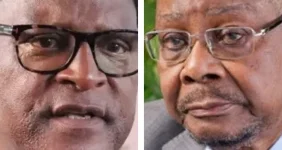According to recent polling data, former President Peter Mutharika appears positioned for a potential return to leadership. A survey gathering nearly 40,000 responses suggests Mutharika might secure victory without requiring political alliances. The results indicate that Malawian citizens retain positive memories of the Democratic Progressive Party leader despite his previous electoral defeat.
The poll conducted by Malawi24 across their social media platforms asked citizens about their voting intentions for the upcoming September election. Over 38,000 individual participants responded during the polling period. As tallying concluded at midnight on February 28, Mutharika emerged as the clear frontrunner, with 62% support among respondents. His performance translated to 23,553 votes from the Facebook portion of the survey.
Dalitso Kabambe, representing the UTM Party after leaving DPP, secured the second position, with 23% of respondents favoring his candidacy. Current President Lazarus Chakwera performed poorly, receiving just 10% support, equivalent to 3,858 votes. The substantial gap between candidates suggests significant changes in public sentiment since previous electoral contests. Many participants cited economic concerns and governance issues as motivation for their selections.
The poll generated 3,700 comments alongside votes, with numerous participants expressing disappointment regarding national challenges. Economic difficulties, including inflation and foreign currency shortages, featured prominently among complaints. Supporters of Chakwera generally dismissed the results as unrepresentative, claiming real voters lack internet access or interest in online polling. A researcher noted that the survey aligns with recent street protests against rising prices.
This represents the first Malawian opinion poll attracting almost 50,000 total engagements with limitations preventing multiple voting. Previous research by Afrobarometer similarly positioned Mutharika ahead, though that study surveyed only 1,500 participants. Malawi24 plans three additional polls before the September 2025 presidential elections to track evolving voter preferences. Such frequent assessment may provide a clearer understanding of political trends approaching the national vote.
The poll conducted by Malawi24 across their social media platforms asked citizens about their voting intentions for the upcoming September election. Over 38,000 individual participants responded during the polling period. As tallying concluded at midnight on February 28, Mutharika emerged as the clear frontrunner, with 62% support among respondents. His performance translated to 23,553 votes from the Facebook portion of the survey.
Dalitso Kabambe, representing the UTM Party after leaving DPP, secured the second position, with 23% of respondents favoring his candidacy. Current President Lazarus Chakwera performed poorly, receiving just 10% support, equivalent to 3,858 votes. The substantial gap between candidates suggests significant changes in public sentiment since previous electoral contests. Many participants cited economic concerns and governance issues as motivation for their selections.
The poll generated 3,700 comments alongside votes, with numerous participants expressing disappointment regarding national challenges. Economic difficulties, including inflation and foreign currency shortages, featured prominently among complaints. Supporters of Chakwera generally dismissed the results as unrepresentative, claiming real voters lack internet access or interest in online polling. A researcher noted that the survey aligns with recent street protests against rising prices.
This represents the first Malawian opinion poll attracting almost 50,000 total engagements with limitations preventing multiple voting. Previous research by Afrobarometer similarly positioned Mutharika ahead, though that study surveyed only 1,500 participants. Malawi24 plans three additional polls before the September 2025 presidential elections to track evolving voter preferences. Such frequent assessment may provide a clearer understanding of political trends approaching the national vote.












